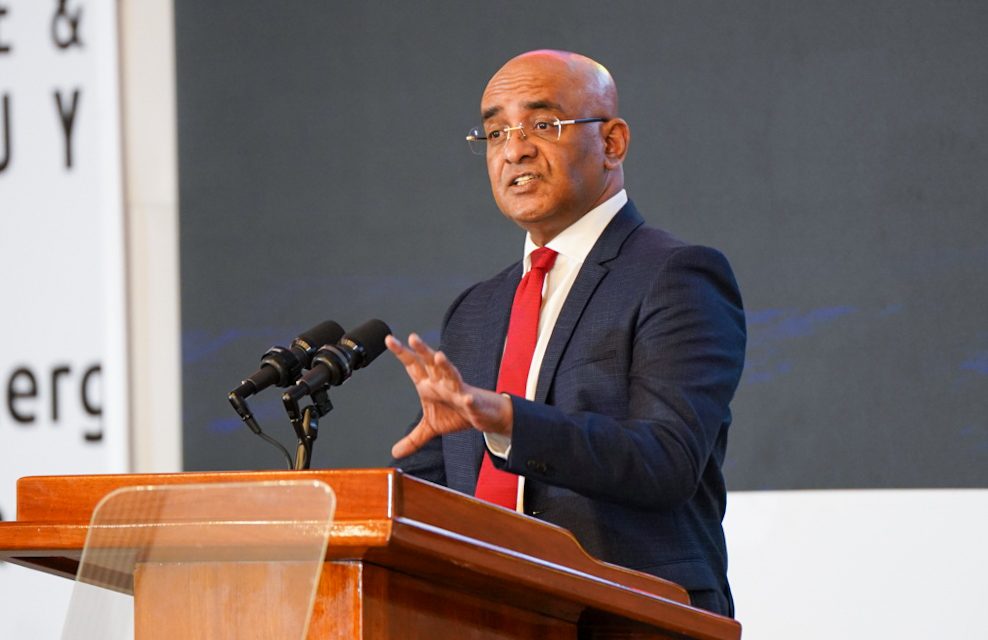There are lots of prominent voices contributing to discourse about the development of Guyana’s petroleum sector, some often extreme. But Vice President Dr. Bharrat Jagdeo wants the industry to know that extremity does not drive Guyana’s energy policy.
“Our country is not without its challenges,” Dr. Jagdeo said. “I’m sure if you read the newspapers, you see all sorts of things ranging from the sublime to the crazy, and often the crazy every single day…”
The Vice President made these comments during a presentation at the International Energy Conference 2023.
“I want you to understand… what’s in our heads, what’s driving the vision, how we’re going to address the contentious, often controversial issues that you see in the public domain, and why we’re taking a particular approach versus another…” Dr. Jagdeo said.
Over the years, prevailing discourse in local media has been about Guyana’s aggressive petroleum development policy, the feasibility of the Gas-to-Energy project, preparation for and prevention against unlikely oil spills, and the question of the renegotiation of the Stabroek Block production sharing agreement (PSA). Some advocates continue to call for a halt on oil production, the upending of the PSA, and a cancellation of the Gas-to-Energy project.
Authorities have constantly addressed contentions related to these issues, ventilating the government’s policies and the actions it has taken to treat with reasonable concerns. However, some advocates refuse to accept the government’s position, especially where the Stabroek Block PSA is concerned. On these matters, the government has called on the private sector, as key beneficiaries of the oil sector, to speak out against extremist anti-oil narratives.
While the government is keen on developing Guyana’s oil resources, Dr. Jagdeo said the government’s energy policy is grounded within a net-zero global policy. He explained that this requires regulation of the highest standard. On this front, his view is that Guyana has been achieving this, while fostering strong, mutually beneficial relationships with international investors. He said the government operates with respect for the need to create opportunities for them. This includes ensuring they operate in an environment of certainty. “You need to see a pattern of behaviour here that is predictable, consistent, that takes account of all of the challenges and realities of countries like ours,” the Vice President said.
For Guyanese, it is about ensuring that they share, in significant part, in the revenues from the extraction and commercialisation of their natural resources. This has manifested itself most recently in seeking a greater portion of revenues from deals, and through a local content law that ensures qualified Guyanese nationals and companies are given preference in the provision of a variety of goods and services to the sector.




